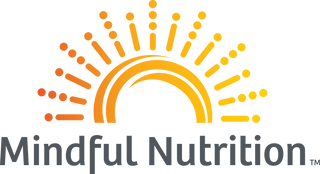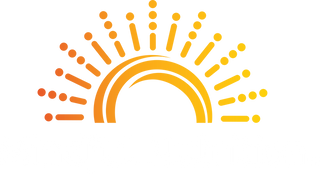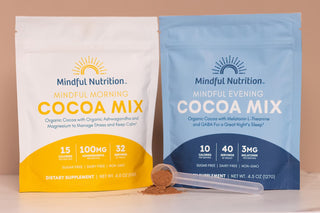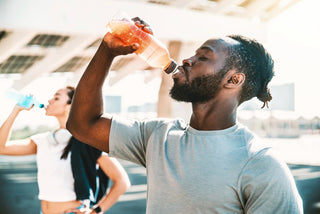Are you interested in learning about the difference between a dairy-free and a vegan diet? Whether it's you or a loved one, adhering to a diet (whether it be due to lifestyle choices or health reasons) requires diligence and attention.
So, keep reading, and we'll tell you the distinction between vegan and dairy-free.
Key Takeaways
- A vegan diet is a plant-based diet that excludes all foods derived from animal sources, including meat, eggs, and seafood.
- A dairy-free diet excludes any dairy products like yogurt, milk, or butter, but can still contain meat and other animal-derived ingredients.
- While all vegan foods are inherently dairy-free, not all dairy-free foods are vegan.
See Related: 5 Health Benefits of Drinking Hot Chocolate
The Basic Distinctions Between Dairy-Free Food and Vegan Food
Vegan and dairy-free diets can share some similarities, but they are far from synonymous. Let's go over the textbook definitions first.
What Is a Vegan Diet?
A vegan diet consists of plant-based foods, such as fruits, vegetables, nuts, seeds, and grains. It explicitly excludes meat, seafood, dairy, eggs, and other animal-derived products (such as honey, in some cases).
It's worthwhile to note that veganism is more than just a diet, as it often extends into an individual's lifestyle. Someone who is vegan often avoids foods or ingredients that use or exploit animals in any form.
Someone may become vegan due to personal health, ethical concerns, or animal welfare. Most of the time, this choice comes from an ethical and moral standpoint.
What Is a Dairy-Free Diet?
A dairy-free diet (also referred to as a lactose-free diet) excludes any dairy product, such as milk, cheese, yogurt, butter, and cream. However, someone on a lactose-free diet can still eat other animal products, such as meat, eggs, and fish.

While the decision to become vegan usually stems from ethical concerns about animal welfare, the choice to be dairy-free is often driven by health issues.
Many people avoid dairy because they have difficulty digesting lactose, the natural sugar in milk. This may cause digestive discomfort for some individuals. Always consult a healthcare professional if you suspect a food sensitivity.
That’s why many people with lactose intolerance look for lactose-free products as an alternative to traditional dairy.
What You Should Pay Attention To
If you're vegan or dairy-free (or shopping for someone who is), it's important to buy and consume products that align with your dietary needs and preferences. Here's what you should look out for.
Read the Label - Always!
Most products that are vegan or dairy-free are labeled as such. For example, our organic hot chocolate mix is labeled as sugar-free, dairy-free, plant-based, non-GMO, and vegan, which may help consumers quickly see how it aligns with their dietary preferences. In fact, most of our hot cocoas and hot chocolates are dairy-free!

There are other types of seals or certifications that may also be useful to keep a look out for.
- Certified Vegan- This seal ensures that the product has not undergone any animal testing and doesn't contain animal-derived products or byproducts.
- Kosher - The kosher label pareve (or parve) indicates that the food doesn't contain any meat or dairy (but isn't necessarily vegan).
Look out for other markers, such as the "may contain" statement. If a product contains dairy products or has come into contact with dairy products, it will have "may contain dairy" on the label.
Bonus: 5 Best Sugar Substitutes for Better Health
Plant-Based Alternatives for a Vegan or Dairy-Free Diet
If you're vegan or dairy-free, there are plenty of alternatives that are both delicious and nutritious. Let's go over a few.
Dairy-Free Products
If you're lactose intolerant, finding dairy-free milk is easier than it seems. There are plenty of plant-based milks that can fit into both lactose-free diets and vegan diets.
Soy milk, almond milk, coconut milk, oat milk, and rice milk are excellent dairy-free alternatives to cow's milk or goat's milk. These plant-based milks are also vegan milks, which means they adhere to both dairy-free and vegan diets. They can also be made into cheese, cream cheese, sour cream, butter, and ice cream.
Vegan Products

As we mentioned, a vegan diet is always considered dairy-free, but dairy-free is not always considered vegan. A vegan diet relies solely on plant-based products and strictly avoids animal products, which means sourcing foods and ingredients may be challenging.
Here are a few foods that are commonplace in a vegan diet.
- Beans and lentils
- Nuts and seeds
- Tofu
- Fruits and vegetables
- Whole grains
The Bottom Line: Vegan Vs. Dairy-Free
Staying informed and educated about the characteristics of the vegan lifestyle and dairy-free diet is important. Whether you're researching this topic due to your own ethical concerns or the dietary restrictions of a loved one, we hope that this article has provided insight and comfort.
Regardless of whether you're vegan or dairy-free, maintaining your diet is a journey. But you don't need to sacrifice flavor and function on this path. That's where hot cocoa steps into the picture.
Our hot cocoa mixes are crafted for those who prefer dairy-free or vegan options and enjoy a comforting, flavorful beverage as part of their daily routine. From our dairy-free and sugar-free Mindful Calm mix to our vegan Organic Skinny mix, we have a variety of drink mixes and hot cocoa blends to help you wind down, relax, and indulge.
Keep Reading: Can GABA Help You Sleep Better?

People Also Ask
Does 100% Vegan Mean Dairy-Free?
Yes, 100% vegan also means that an individual is dairy-free. A vegan diet doesn't consist of animal-derived foods or products, which means that dairy and eggs are off the table.
What Happens When You Cut Out Dairy?
If you have been experiencing unwanted effects after consuming dairy, cutting it out of your diet may lead to some positive changes. Always consult with a healthcare provider if you think this may be the case.
Just keep in mind that embracing a dairy-free diet (unless you need to do so for medical or lifestyle purposes) can cause you to miss out on essential nutrients like calcium, vitamin D, and vitamin B12.
Does Dairy-Free Mean No Eggs?
Eggs are not considered a dairy product, so you're safe to eat that egg and bacon breakfast sandwich if you're dairy-free (but not vegan). Eggs don't contain milk, so they are safe to eat in a milk-free or dairy-free diet.
--
Mindful Nutrition is a veteran-owned company with a passion for wellness. We use natural ingredients in our products, including melatonin, GABA, ashwagandha, and L-Theanine. Our hot cocoa blends are vegan, non-GMO, and plant-based, crafted to be a comforting addition to your daily ritual. We utilize third-party testing on all products to ensure purity, quality, and safety. To stay connected and learn more, follow us on Facebook, Instagram, and LinkedIn.
--
These statements have not been evaluated by the Food and Drug Administration. Our products are not intended to diagnose, treat, cure, or prevent any disease. The content on this website is for informational purposes only and is not intended as a substitute for advice from your physician or other healthcare professional. Always consult with a qualified healthcare provider regarding any medical condition or health concerns.















